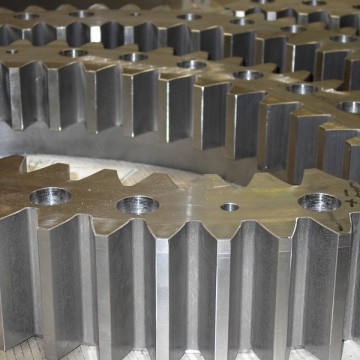Thermal chemical surface treatment for ferrous
Borizing is a thermal chemical surface treatment for ferrous metals resulting in a very hard and wear-resistant iron boride surface.
This treatment is very well suited for parts that are exposed to abrasive or adhesive wear and tear but which do not have to be very corrosion-resistant. In principle, all ferrous metals can be treated in this fashion, but it is important to realize that the silicon content should not exceed 1% and that the aluminium content must remain below 0.005%.
The benefits of borizing include a surface hardness that is three times as high as the untreated material and is two times as high as that which is obtained via nitration or hardening. Cold welding problems will also be greatly reduced. A reasonable degree of corrosion resistance is obtained against alkaline and non-oxidizing acid conditions as well as good resistance against cavitation. Products often treated in this fashion include slider cutoff valves for the chemical industry, dosage screws, rotating heads, tools for the glass industry and wear-resistance plates.
Characteristics of the borizing treatment:
- Diffusion thickness: 10-30 µm
- Applicable up to peak temperatures of 1000°C and a maximum continuous temperature of 500°C
- Surface hardness: 1600-2000 Micro Vickers
- Economically attractive treatment due to low cost of tools
- Extremely effective bonding due to jagged shape of boride surface.
- Core hardening possible during and after borizing treatment
- Maximum dimensions: 3200x2000x900mm, other dimensions on special order
Industries:
- Equipment manufacturing
- Accessories/fittings
- Machine/engine building
- Glass industry
- Textile industry
- Mining industry

